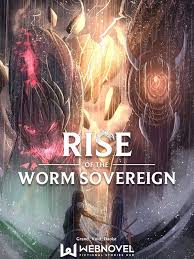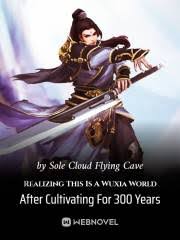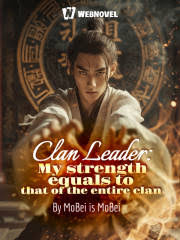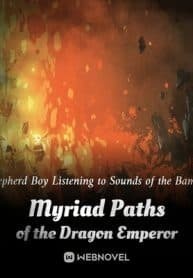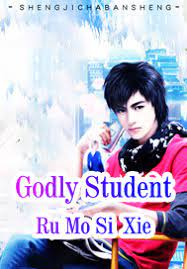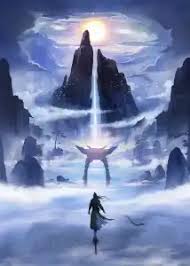The Story in 3 Sentences
A burnt-out university student named Lin Wu dies from an energy drink overdose and wakes up reincarnated as a tiny, helpless worm in a vast, unknown cultivation world, his only companion a bafflingly cryptic system.
He claws his way from the dirt, shedding his human mindset to embrace his new existence, evolving from prey into a cunning apex predator who manipulates cultivators and spirit beasts alike, his power growing as he accepts his monstrous nature.
His ascent culminates in him becoming the feared and revered Worm Sovereign, a cosmic entity whose journey from the lowest rung of the food chain reshapes the heavens themselves, proving that true power comes from embracing one’s essence, no matter how humble its origin.
Why It Stands Out
1. The Ultimate Underdog Story, Literally
This isn’t just a weak-to-strong tale; it’s a non-entity-to-godhead odyssey. Starting as a literal worm, Lin Wu’s journey forces a complete redefinition of strength and identity. The narrative brilliance lies in how he leverages his minuscule form and alien perspective, turning perceived weaknesses into devastating advantages, making every victory feel earned and revolutionary.
2. A System That’s Part Ally, Part Mystery Box
Forget systems that hand out cheat skills. Lin Wu’s companion is frustratingly opaque, learning about the world alongside him. This dynamic creates a unique tension where the MC must rely on his wits and adaptability rather than pre-programmed power-ups, making his growth feel organic and deeply personal, a true partnership forged in the crucible of survival.
3. Embracing the Monster Within
The novel’s core triumph is Lin Wu’s psychological evolution. He doesn’t yearn to become human again; he dives headfirst into his new reality, adopting the ruthless, instinct-driven logic of a supreme beast. This commitment to his monstrous identity, while retaining his human intellect, creates a protagonist who is terrifyingly unique and refreshingly authentic, a true sovereign of his own bizarre domain.
Characters That Leave a Mark
There’s Feng Luo – a lowly rogue cultivator whose untimely demise in the Millennium Forest provides Lin Wu with his first crucial stepping stone, a discarded corpse that becomes the worm’s initial vessel for interacting with the world.
You’ll meet Tim, who emerges as a significant figure capable of awakening the immense power of the Yellow Dragon, an earth elemental beast whose mastery hints at world-shaking potential and whose unresolved story arc remains a point of fascination for readers.
And the Yellow Dragon? They’re the one who represents an ancient, elemental force of nature, a being of absolute mastery over the earth whose very presence signifies a shift in the world’s balance, tied intrinsically to Tim’s awakening and the novel’s larger, cosmic stakes.
The Flaws Fans Debate
The first 20-30 chapters are a notorious slog, testing reader patience with a seemingly dumb protagonist and an absurdly unhelpful system, a hurdle the story itself later justifies but doesn’t erase the initial frustration.
Lin Wu’s incessant use of the phrase “chickie nuggies” in the early chapters is cited by many as immersion-breaking and grating, a juvenile tic that clashes with the otherwise serious cultivation setting.
The world often feels unnaturally static, bending around the MC; massive, city-leveling events occur with no investigation from nearby powerful factions, creating plot holes that strain credulity for some readers.
Must-Experience Arcs
Ch. 1–50: The Burrowing Beginnings – Lin Wu grapples with his worm form, discovers his cryptic system, and secures his first human corpse, Feng Luo’s, marking his transition from passive observer to active, albeit tiny, player in the cultivation world.
Ch. 200–400: Sovereign of the Soil – Having shed his initial limitations, Lin Wu establishes his dominance in his local region, manipulating spirit beasts and human sects, showcasing his strategic mind and fully embracing his identity as a supreme beast, no longer pretending to be human.
Ch. 1000–1097: The Worm Takes the Heavens – Lin Wu ascends to his ultimate form as the Worm Sovereign, confronting cosmic entities and reshaping reality, culminating in a powerful, albeit for some, abrupt finale that leaves certain threads like Tim and the Yellow Dragon tantalizingly unresolved.
Killer Quotes
“Chickie nuggies! What the hell is this?”
“I’m a worm. I don’t need to think like a human. I need to think like the apex predator I am becoming.”
“Power isn’t given. It’s taken, inch by bloody inch, from the dirt beneath you.”
Cultural Impact
The novel cultivated a fiercely loyal niche fanbase who bonded over surviving the “chickie nuggies” gauntlet and celebrated Lin Wu’s unique, non-human ascent.
Its official Discord server became a hub for theorizing about the system’s origins and debating the fates of characters like Tim and the Yellow Dragon after the story’s conclusion.
It is frequently cited in online forums as a benchmark for “monster protagonist” stories, praised for its commitment to the concept and its subversion of xianxia tropes, inspiring a wave of similar “reincarnated as a bug/beast” narratives.
Final Verdict
Start Here If You Want:
A wildly original, high-concept xianxia where the underdog starts at the absolute bottom of the food chain. A protagonist who undergoes a profound, believable psychological transformation, fully committing to a non-human identity. A story that rewards patience, where early frustrations are woven into the narrative’s larger themes of adaptation and growth.
Study If You Love:
Exploring narratives of radical identity transformation and the psychology of embracing the monstrous or alien.
Stories where the power system is a character in itself, evolving and learning alongside the protagonist.
World-building that prioritizes the unique perspective and capabilities of its non-human lead, offering a fresh lens on familiar cultivation tropes.
Avoid If You Prefer:
Stories with a consistently intelligent, calculating protagonist from the very first chapter.
Tightly plotted narratives with no loose ends or unresolved character arcs by the finale.
Fast-paced openings; this novel demands an investment in its slow, deliberate, and initially absurd beginning.
